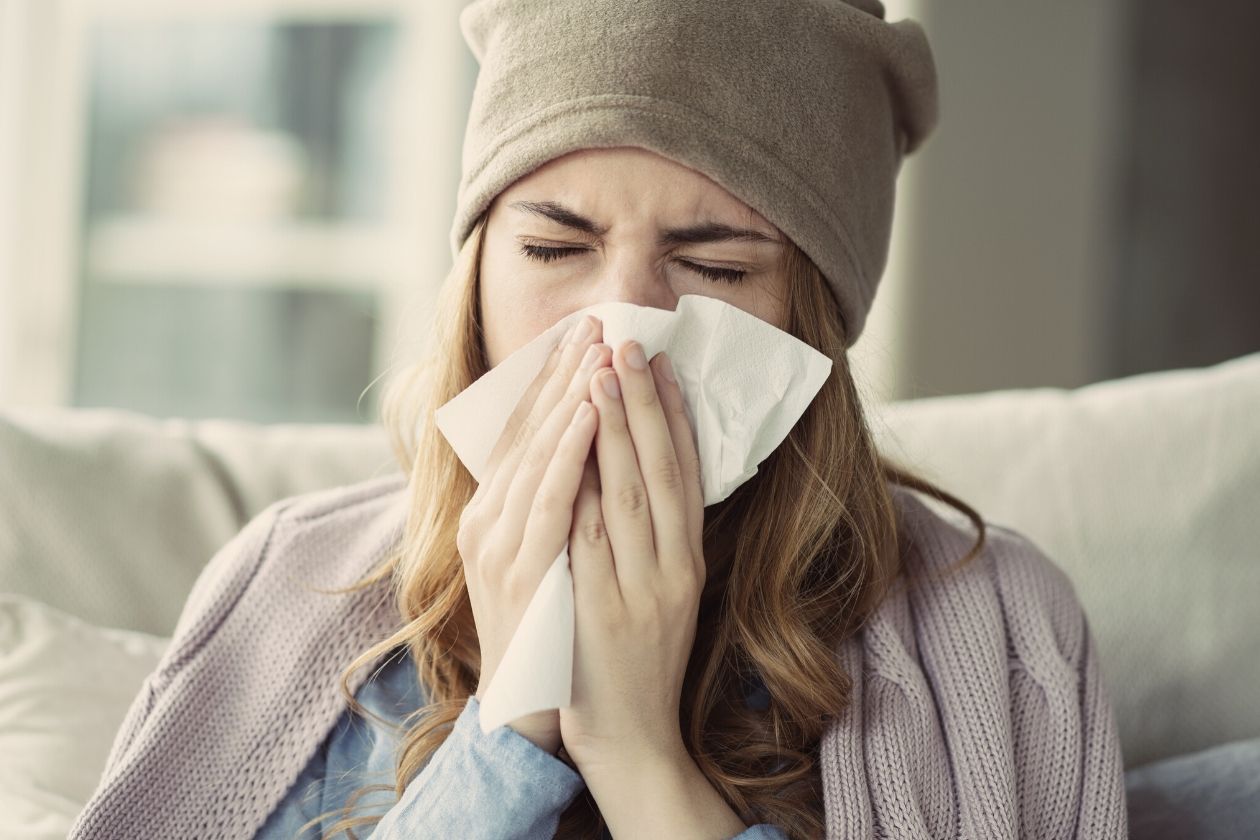Winter is upon us, and with it comes a wide array of potential health concerns. With everyone seeking comfort and warmth indoors, germs and bacteria can spread easily from person to person, infecting everyone in their wake. Stave off seasonal sickness and step into the new year in peak physical form with this guide for how to avoid common winter health problems.
Table of Contents
Flu
People often refer to winter as flu season, and with good reason. With so many people cooped up indoors and with immune systems operating slightly slower than normal, you’re at a higher risk of contracting the flu. Therefore, the best tip for how to avoid common winter health problems, including the flu, is to practice good personal hygiene. Washing your hands regularly and carrying sanitizer will help neutralize these germs and reduce the likelihood that you’ll contract the flu. Regularly cleaning and sanitizing common household items such as phones and remote controls will also help destroy these germs. Furthermore, taking daily vitamins can keep your body in peak condition throughout the cold and flu season. Taking a daily vitamin D supplement, for instance, will help strengthen your body’s immune system and decrease the risk of developing the flu or other illnesses related to a vitamin D deficiency.
Seasonal depression
Seasonal depression is a common health concern for many people. Some factors that may impact seasonal affective disorder, or SAD, include a change in melatonin and serotonin levels or a disruption of your body’s biological clock. These changes to your circadian rhythm and serotonin levels may result from the shortened days and reduced sunlight. Increasing the amount of time you spend in the sun or engaging in light therapy can help reduce some symptoms of seasonal depression. However, because the causes for seasonal depression are still largely unknown and vary from person to person, be sure to speak with your doctor about your specific symptoms to find the best treatment for you.
Asthma
For people diagnosed with asthma, winter can be a particularly challenging time. Stepping outdoors into cold weather can trigger asthma attacks, while dust and allergens abound indoors. Therefore, keeping your inhaler close at hand is the best way to avoid an asthma attack during the winter. If you’re planning to venture outdoors on a particularly cold day, loosely covering your mouth and nose with a scarf can help prevent shortness of breath, wheezing, and other common asthma symptoms.
Dry skin
Dry skin may seem like nothing more than a minor inconvenience, but it can be quite painful and sometimes lead to more serious infections. Low humidity levels and cold weather can cause your skin to dehydrate more quickly. Meeting your suggested daily fluid intake and moisturizing your skin on a regular basis will keep your skin hydrated and healthy all winter long. You should also try to avoid strong soaps and excessively hot water, as they can dry out your skin more quickly.




